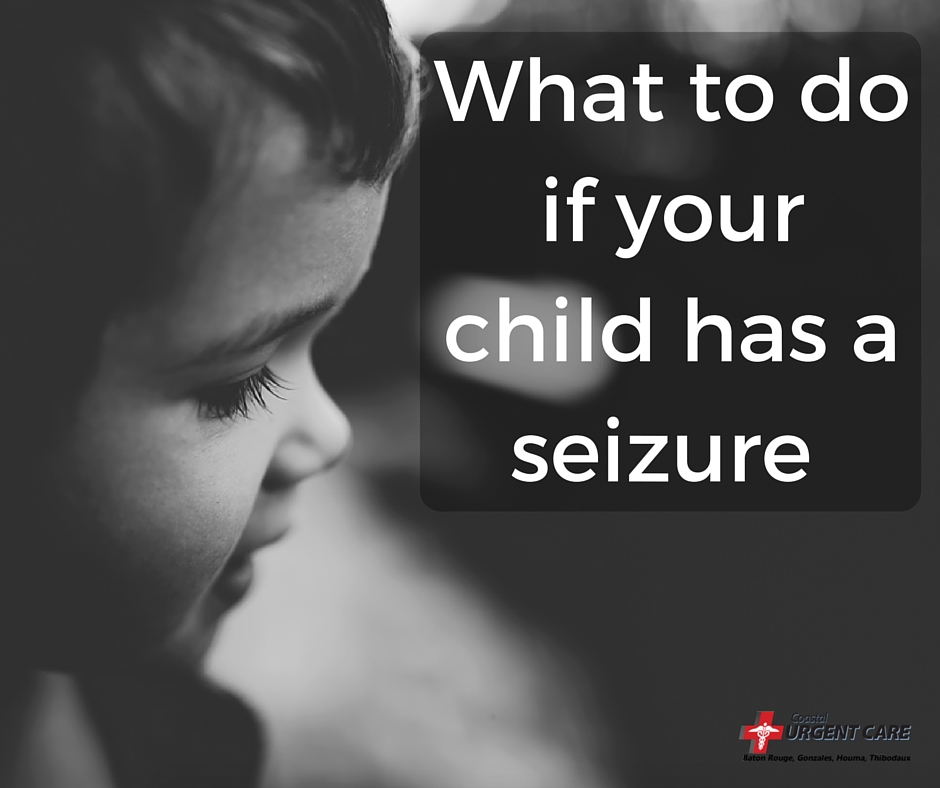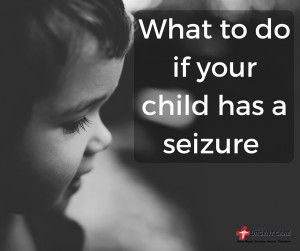
 Seizures can be scary, especially if you’ve never witnessed one before. And if you’re a parent whose child is seizing? Scary doesn’t even begin to cover it. Many people aren’t used to seeing them and often don’t know what to do. How often do we see the following scenario on TV: “He’s seizing! Hold him down!” For a lot of folks, that’s the extent of their knowledge regarding seizures and it is oh so wrong. This is what you really need to do if your child has a seizure.
Seizures can be scary, especially if you’ve never witnessed one before. And if you’re a parent whose child is seizing? Scary doesn’t even begin to cover it. Many people aren’t used to seeing them and often don’t know what to do. How often do we see the following scenario on TV: “He’s seizing! Hold him down!” For a lot of folks, that’s the extent of their knowledge regarding seizures and it is oh so wrong. This is what you really need to do if your child has a seizure.
Put them on the floor – somewhere safe.
If you do not place the child on the floor, and instead opt for a piece of furniture like a couch or a table, they could very easily flip themselves off of it and onto the floor. Depending on the height of the furniture in question, and how they fall, this could result in a couple of bruises or some broken bones. In order to avoid additional injury, move any objects, such as chairs or toys, away from them.
Loosen their clothes around their head and neck.
Ever roll over in bed and have your PJs tighten uncomfortably, so you have to readjust your clothes? If someone is thrashing uncontrollably, their shirts may get twisted up around their bodies. This could restrict their ability to breathe properly, so do your best to keep their clothes loose. Also, if they are wearing glasses, remove them so they don’t break.
Do NOT restrain them
They could injure themselves, or you, if you attempt to restrain them. Likewise, don’t try to force anything between their teeth. Chances are their jaw has locked up, and forcing their teeth apart will do more harm than good. A common misconception is that a person who is seizing will swallow their tongue. This actually is not true.
Do not try to remove any food from their mouth
If there is food in their mouth, don’t try to remove it, as you may force it deeper into their throat. If possible. just try to keep them on their right side so gravity keeps the food in their cheek.
When to call 911
If your child:
- Has trouble breathing
- Turns blue
- Has a head injury
- Is behaving strangely, or is ill
- Has heart trouble
- Has possibly ingested poison or improper medication
- Has never had a seizure before
- If your child has had a seizure before, but the seizure lasted more than 5 minutes – or if it is more alarming than previous episodes
Do not give your child anything to eat or drink until they are fully awake and alert. Most children are typically tired or confused after a seizure and will fall asleep – this is normal, and you do not need to wake them as long as they’re breathing normally.
If your child has been previously diagnosed with epilepsy or another condition that causes seizures, you can bring them to the urgent care to be checked out. If this is an unexplained seizure, we recommend you take them straight to the ER.
